Search Results
Showing results 241 to 260 of 289
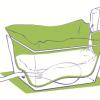
Make a Model Caldera
Source Institutions
In this quick activity (page 2 of PDF under GPS: Lava Flow Activity), learners will model how large depressions near the top of a volcano are formed by using an inflating and deflating balloon submerg
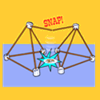
Spaghetti Bridge
Source Institutions
Play with your food while learning about engineering! Build a spaghetti bridge, then test its strength by piling on the marshmallows, raw spaghetti, raw linguine and coins.

Design a Lunar Rover!
Source Institutions
In this team design challenge (page 2-10 of PDF), learners design and build a model of a Lunar Transport Rover that will carry equipment and people on the surface of the Moon.

Folding Matters
Source Institutions
In this activity, learners explore how the process of folding has impacts on engineering and is evident in nature.

Catapult
Source Institutions
Build a catapult that transforms the potential energy of a twisted rubber band into kinetic energy. Experiment with design variations so that you can hit a target with a projectile.

Flower Powder
Source Institutions
In this outdoor activity, learners use artificial bees and paper models of flowers to find out how bees transfer pollen from one flower to another.

Clean Water: Is It Drinkable?
Source Institutions
In this activity, learners simulate nature's water filtration system by devising a system that will filter out both visible and invisible pollutants from water.

Soaring Satellites
Source Institutions
Working in small teams, learners try to build a satellite that can float for at least five seconds in the marked area of a vertical wind tube.

Gel Electrophoresis
Source Institutions
In this activity, learners simulate the process of DNA fingerprinting by using electricity to separate colored dyes.

Make a Totem Pole
Source Institutions
In this activity (on page 2 of PDF), learners make their own totem poles out of recycled materials.
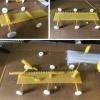
DIY Pasta Rover
Source Institutions
In this activity, learners design and build a NASA rover using raw pasta and candy with a limited imaginary budget.

Tumble Wing Walkalong Glider
Source Institutions
In this physics activity (page 2 of the PDF), learners will construct their own walkalong glider. They will explore how air, though invisible, surrounds and affects other objects.
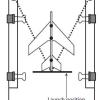
Geometry and Algebra: The Future Flight Equation
Source Institutions
In this activity, learners discover how NASA engineers develop experimental aircraft.
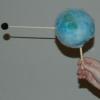
Exploring Strange New Worlds
Source Institutions
This fun and simple hands-on astronomy activity lets learners explore model planets (that they or an educator will create), using methods NASA scientists use to explore our Solar System.
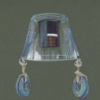
Submarine: Soda Cup Lander
Source Institutions
In this activity (on page 2), learners create a submarine using a plastic cup. This is a fun way to learn about buoyancy and density.
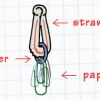
Deep Sea Diver
Source Institutions
In this ocean engineering activity, learners explore buoyancy and water displacement. Then, learners design models of deep sea divers that are neutrally buoyant.
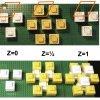
Exploring the Nanoworld with LEGO Bricks: Structures at the Nanoscale
Source Institutions
In this activity (pages 7-16), learners model various crystal structures with LEGOs. This activity also contains additional links that explain how to create other crystal structures.

Scale Models
Source Institutions
In this activity, learners explore the relative sizes and distances of objects in the solar system.
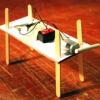
Minibot
Source Institutions
In this activity, learners build a mini dancing robot. This engineering activity introduces learners to electricity, circuits, switches, conductivity, and motors.
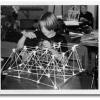
Skewers and Garden Poles
Source Institutions
In this activity, learners build scaled-down structures and cantilevers in a series of "building out" challenges with bamboo skewers and tape.
